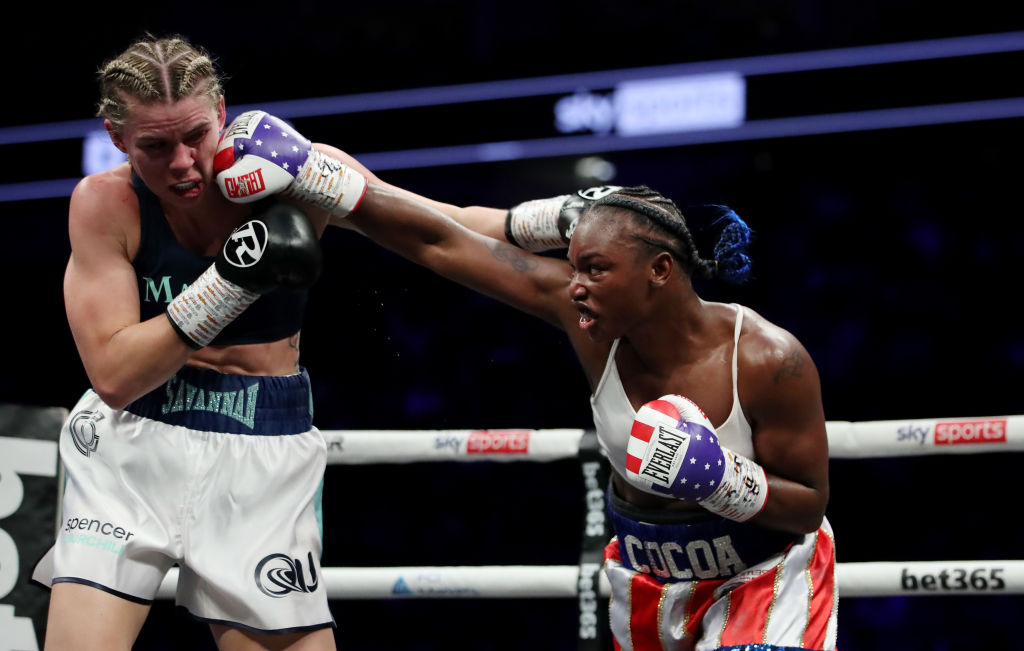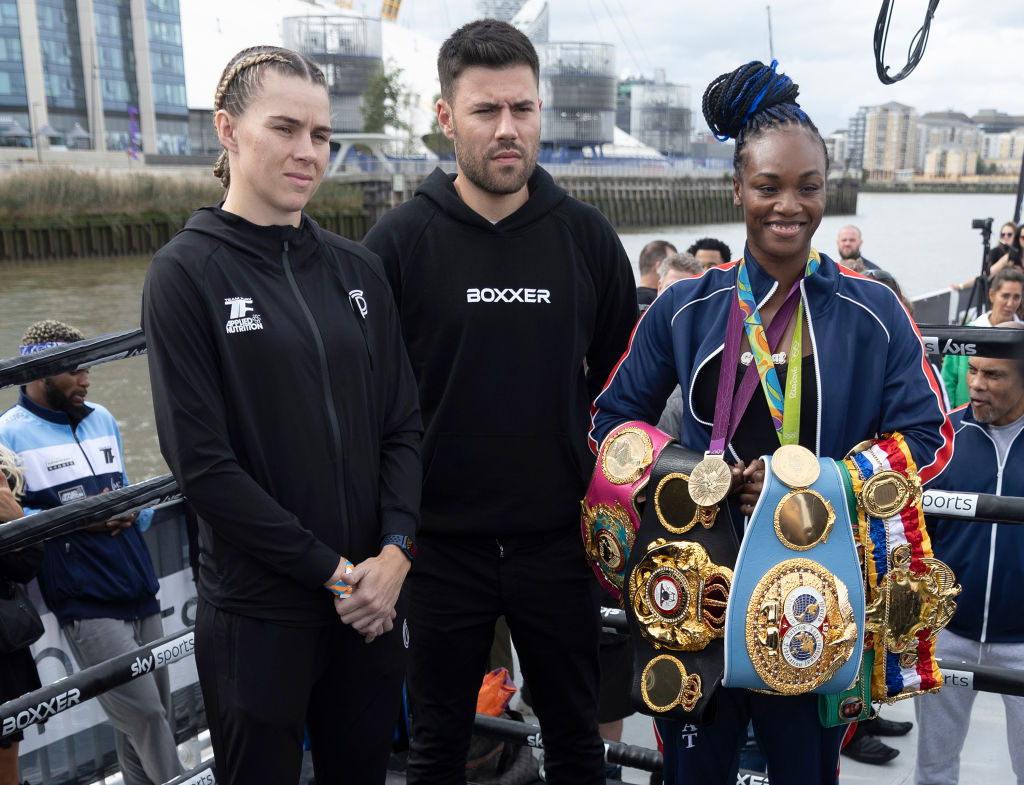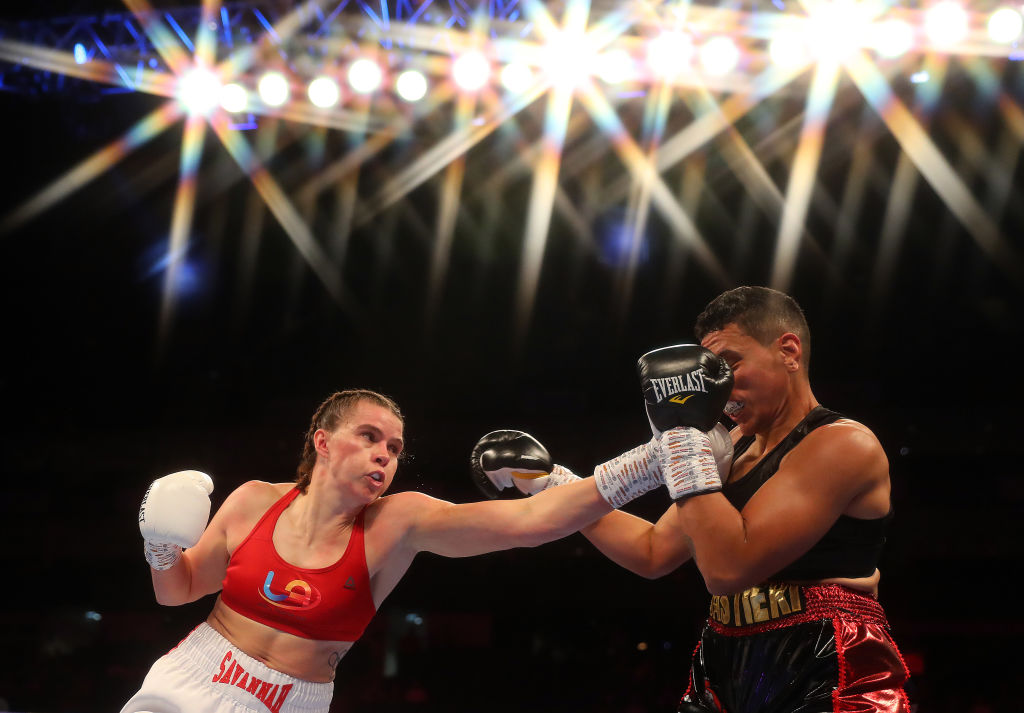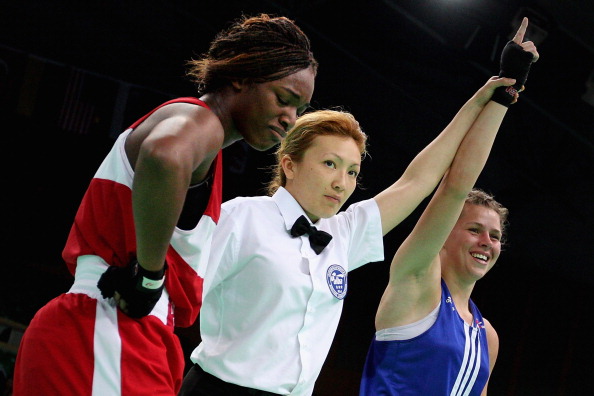Best of 2022: Claressa Shields v Savannah Marshall and the rise of women’s boxing

Women’s boxing enjoyed unprecedented prominence in 2022, not least when Britain’s Savannah Marshall and American Claressa Shields met in a blockbuster fight at the O2. This preview, originally published in October, set the scene for the biggest night of women’s boxing ever seen in the UK.
The last time Savannah Marshall and Claressa Shields met in a boxing ring, they were both amateurs with no realistic prospect of making a good living from the sport.
A decade on, the bitter rivals are due to renew hostilities at the top of the professional ranks on a historic occasion that promises to earn them $1m each.
The purse illustrates the profile of Saturday’s middleweight unification fight between England’s Marshall and American Shields which, it is hoped, will sell out London’s 20,000-capacity O2.
It is the headline act on the first elite all-female card ever seen in the UK, as women’s boxing gets the chance to show that it, too, can be big business.
“We wanted this to be the biggest female fight of all time and we wanted it to be watched by more people than ever,” Ben Shalom, CEO of promoter Boxxer, told City A.M. “We feel we’re completely on course for that.”
Women’s boxing has grown rapidly since entering the Olympics at London 2012, where a 17-year-old Shields won the first of two gold medals.
Marshall failed to live up to her world champion billing at the home Games but the success of Team GB’s Nicola Adams and Ireland’s Katie Taylor thrust it into the spotlight.
Taylor in particular blazed a trail in the professional ranks, culminating in her sold-out showdown with Amanda Serrano at New York’s Madison Square Garden earlier this year.
That marked the first time a women’s fight had headlined the legendary boxing venue, and this weekend sees Marshall and Shields break more new ground.
“To be topping any boxing event is a huge privilege, and one that I’m always grateful to be a part of,” Marshall told City A.M. “But for this to be an all-female card – and the first of its kind – creates a different type of feeling.”

In addition to those at the O2, many more are likely to watch the fight from home. Shalom has set the ambitious target of 1m viewers in the UK. It will also be broadcast in 100 other countries.
The show is on Sky Sports but not behind its additional Box Office paywall, with Boxxer hoping to encourage growth in women’s boxing and reap the rewards later.
“The interest is so big that we could easily have put this on pay-per-view. We feel we could have put men’s heavyweight titles on the undercard and sold it even better,” said Shalom.
“But we’re taking a long-term approach. We know this is going to be the greatest advert for women’s boxing there has ever been.”
Nonetheless, the buzz has been big enough to generate the biggest purse by far of Marshall’s career, and one on a par with Shields’s last fight.
Shields v Marshall: GWOAT v Silent Assassin
Driving the appeal is the unvarnished and long-running antipathy between two of the best and most stylistically opposed fighters in the game.
Shields, 27, is aiming to become the first man or woman in the modern era to be undisputed champion at two weights and bamboozles opponents with flurries of punches.
Marshall, 31, holds the only middleweight belt that the American doesn’t and has ended 10 of her 12 pro fights early with juddering hits.
Their personalities are also chalk and cheese, with the outspoken Shields appointing herself the GWOAT – Greatest Woman of All Time – and the introverted Marshall dubbed the Silent Assassin.
And what vexes Shields more than anything is that Marshall remains the only woman ever to have beaten her, in that previous meeting at an amateur world championships a decade ago.
“Even though everybody’s making this fight about Savannah Marshall’s knockout power supposedly, I’m the one with all the accomplishments,” Shields told City A.M. “She won one world title and I’ve won 12 in three different weight classes.”

“This fight with Claressa feels like this was always meant to be,” said Marshall, who is trained by Peter Fury, uncle and mentor of British heavyweight world champion Tyson Fury.
While women’s boxing has had stars such as Adams and Taylor, it has not had the depth of quality needed for genuine rivalries – until now.
“In boxing first of all you need a great fight,” said Shalom. “This is a great fight, a rivalry that we’ve never seen in women’s boxing before. It’s incredible the interest it has got.”
The profile of the Shields-Marshall card has also benefited from the wider boom in women’s sport, and Marshall namechecks the England’s Lionesses as well as the acceptance in other combat sports of female fighters, such as mixed martial arts star Ronda Rousey.
It has also been aided, too, by the quality of the undercard, which features a blockbuster super featherweight title fight between Americans Mikaela Mayer and Alycia Baumgardner.
“It isn’t special just because it’s an all-female show. This is a great boxing card period,” said Marshall. “People are taking notice of this because the quality speaks for itself.”
Purses at the biggest men’s fights dwarf this one – Tyson Fury can command £25m – but Shields believes women are on course to achieve parity.
“If we keep making the best-versus-the-best [fights], I think that women’s boxing will catch up to men’s and will be equal, probably during my time,” she said.
The warring pair can agree on one thing: they want Saturday’s show – postponed last month following the death of the Queen – to capture attention and be the first of many such nights.
“I hope we make national news all over the world,” said Shields.

Shalom believes it will grow women’s boxing further, bring new audiences to fights and maybe even rehabilitate the sport’s chequered image.
“For everything that perhaps isn’t managed well in boxing, this is a historic moment that shows how popular the sport is and how people have accepted that women’s boxing is a serious discipline,” he said.
“There will be a lot of girls at home who can now see a serious trajectory for a professional career in boxing.”
Around one third of ticket buyers for women’s boxing are female, compared with just five per cent in men’s.
“We’re hoping the rise of the women’s sport is what opens boxing up and helps us in our mission of trying to make it more transparent, accessible and better run so that it can flourish,” he added.
“Because we need partners and broadcasters to feel proud of being associated with the sport.”
